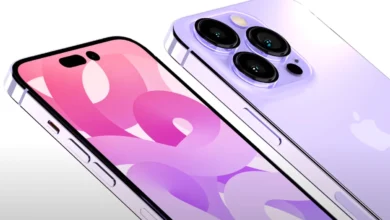Future of Mobile Technology – Tomorrow’s Innovations

In a rapidly evolving technological landscape, mobile technology stands at the forefront of innovation, continually creating the way we express, work, and stay our stays. From the self-effacing start of mobile phones to the era of smartphones and far away, the future of mobile technology compacts more transformative changes. Let’s explore what lies ahead for the world of mobile technology.
Mobile technology guides the mobile devices and infrastructure that allow wireless communication and computing. It contains a comprehensive coverage of appliances, including smartphones, tablets, wearables, and IoT gadgets, all linked via cellular networks or Wi-Fi.
Evolution of Mobile Technology
Mobile technology has come a long way since its beginning, changing from serious machines qualified for just making calls to elegant. Powerful machines that are essentially mini-computers in our pouches. The development of mobile technology has not only modified the techniques. We express but have also reorganized different elements of our daily lives. Let’s take an expedition via the critical crossroads in the development of mobile technology.

Early Days: The Birth of Mobile Phones
The upgrade of mobile technology was initiated with the invention of the movable mobile phone by Motorola creator Martin Cooper in 1973. At almost 2.5 pounds, the Motorola DynaTAC 8000X was a far scream from today’s little and light smartphones. However, it celebrated the beginning of a new intermission in communication, releasing people from the situations of landline telephones.
The Rise of Smartphones
The real revolution in mobile technology began with the introduction of smartphones. While smartphones like the IBM Simon Personal Communicator and Nokia Communicator delivered fixed functionality outside calling and messaging, the takeoff of the Apple iPhone in 2007 truly changed the game. With its elegant design, intuitive touchscreen interface, and entry to the App Store, the iPhone developed a new average for smartphones and kickstarted the era of mobile computing.
The App Ecosystem
One of the clarifying qualities of modern mobile technology is the app ecosystem. The preface of app supplies, beginning with the Apple App Store in 2008 and tracked by the Google Play Store, revolutionized the approach we use our smartphones. Unexpectedly, users had entrance to an extensive display of apps for everything from social media and gaming to productivity and navigation, transforming their machines into universal mechanisms for work and play.
The Emergence of 5G Technology
The rollout of 5G technology describes the next stand in the development of mobile connectivity. With commitments of more rapid download velocities, more down latency, and more excellent capability, 5G can open new opportunities for mobile technology. From comprehensive reality and virtual reality experiences to independent autos and outlying healthcare. 5G technology is arranged to revolutionize the manner we interact with our machines and the world around us.
The Future of Mobile Technology
Looking ahead, the future of mobile technology maintains even more compelling possibilities. Foldable phones are suspended to change the form factor of smartphones and encourage new use possibilities. Advancements in artificial intelligence and device knowledge will continue to improve. The capabilities of mobile devices, from personalized virtual associates to intelligent camera features.
Current Trends in Mobile Technology
Looking ahead, the future of mobile technology maintains even more compelling possibilities. Foldable phones are suspended to change the form factor of smartphones and encourage new use possibilities. Advancements in artificial intelligence and device knowledge will continue to improve. The capabilities of mobile devices, from personalized virtual associates to intelligent camera features.

Foldable Phones:
- Foldable phones describe a practical innovation in smartphone design, offering users the flexibility of a more extensive display in a consolidated form element.
- With foldable OLED representatives that can bend without cracking, these devices allow multitasking and captivating experiences like never earlier.
Artificial Intelligence Integration:
- Artificial intelligence (AI) is progressively integrated into mobile gadgets to improve user knowledge and facilitate assignments.
- From virtual associates like Siri and Google Assistant to AI-powered camera elements and supposing text. Knowledge and AI have reorganized how we make contact with our smartphones.
Augmented Reality and Virtual Reality:
- Expanded reality and virtual reality technologies are confusing the lassoes between the digital and biological globes.
- Mobile machines provided with ARKit and ARCore allow users to overlay digital content in the real world. At the same time, VR headsets offer captivating gaming and entertainment knowledge.
5G Technology Adoption:
- The rollout of 5G networks vows to revolutionize mobile connectivity, suggesting faster speeds, more down latency, and more significant capability.
- 5G technology extends possibilities for real-time applications such as increased actuality, autonomous autos, and IoT devices.

Camera Innovations:
- Camera qualifications have become a focal issue of mobile technology, with works continually pushing the limitations of what is achievable.
- From multiple lenses and detectors to advanced image processing algorithms, smartphones are now qualified to apprehend professional-quality photos and videos.
Biometric Authentication:
- Biometric authentication techniques such as fingerprint scanning and facial mention are becoming standard features on smartphones.
- These technologies offer convenient and secure ways to unlock devices and authenticate transactions, replacing traditional password-based authentication methods.
Privacy and Security Enhancements:
- Privacy and security continue to be a top priority in mobile technology, driving advancements in encryption, data protection, and privacy controls.
- Manufacturers are implementing strong security elements and providing users with greater control over their data to secure privacy and security.
Future Innovations in Mobile Technology
The future of mobile technology holds spacious promise, with many innovations in perception that are developed to redefine the abilities and functionalities of our machines. These coming advancements in mobile technology will revolutionize how we interconnect with our smartphones and additional mobile machines. And emerge the path for new experiences and choices. Let’s analyze some of the usable innovations that we can desire to detect in the empire of mobile technology in the near future.

Wearable Devices:
- Wearable devices are anticipated to become actually more merged into our daily lives, delivering enhanced health monitoring, fitness tracking, and contact functionalities.
- Future creations include cutting-edge biometric detectors, adaptable presentations, and ideal integration with other machines, resulting in a genuinely associated ecosystem.
Internet of Things (IoT) Integration:
- The Internet of Things (IoT) is balanced to play an influential role in the future of mobile technology, with corresponding devices evolving progressively universally.
- Mobile technology will allow ideal communication and management of IoT devices, enabling automation, efficiency, and comfort in various aspects of our lives.
Biometric Authentication Advances:
- Biometric authentication processes such as fingerprint scanning and facial recognition are expected to evolve, offering more protected and reasonable ways to recognize users.
- Future inventions include developed biometric modalities such as iris scanning and coating mention, improving security and usability.

Quantum Computing Integration:
- The source of quantum computing promises to revolutionize mobile computing by solving complex problems at unprecedented speeds.
- Quantum-enabled mobile machines could perform assignments that are presently impossible with classical computing, opening new abilities in AI, cryptography, and scientific simulations.
Extended Reality (XR) Experiences:
- Extended reality, which contains expanded reality, virtual actuality, and diverse reality, is developed to evolve and become standard on mobile gadgets.
- Future innovations include advancements in structural computing and haptic feedback real-time association, which could allow new conditions of entertainment, instruction, and productivity.
Enhanced Connectivity Options:
- Mobile technology will continue to make the edges of connectivity with creations such as satellite internet, mesh networks, and ultra-wideband contact.
- These improvements will ensure ideal connectivity and range, actually in secluded areas, and allow new applications and benefits that depend on high-speed, low-latency connections.
Personalized User Experiences:
- Advances in artificial intelligence and machine knowledge will allow mobile devices to suggest personalized user occasions customized to individual choices and manners.
- From personalized guidance and contextual notifications to adaptive interfaces and intelligent automation, future mobile devices will expect and more actually cater to users’ requirements.
Impact of Mobile Technology on Society
The effect of mobile technology on society advances far beyond mere ease; it has fundamentally changed. The way we live, work and interact with one another. From communication and healthcare to teaching and commerce, mobile technology has reshaped additional aspects of society. Its resounding effect continues to evolve with each passing day. Let’s explore how mobile technology has impacted and shaped the material of stylish society.

Communication Revolution:
- Mobile technology has revolutionized contact, allowing immediate connectivity and international distance.
- Through voice calls, text messages, video chats, and social media outlets, people can remain related to friends, family, and associates still within geographical borders.
Healthcare Transformation:
- Mobile technology has changed healthcare delivery, making healthcare services more affordable and suitable.
- Telemedicine, health monitoring apps, and wearable devices allow patients to confer with healthcare experts remotely. They can also obtain real-time health data and manage established requirements more virtually.
Education Access and Enhancement:
- Mobile technology has developed entrance to instruction, supplying knowledge, help, and opportunities to people around the world.
- Educational apps, online terms, and digital textbooks allow learners to approach quality teaching anytime, anywhere. They decrease barriers to understanding and encourage lifelong learning patterns.
Challenges and Opportunities
While mobile technology holds massive promise, it also presents opposition, such as:
Privacy and Security Concerns: The universal existence of mobile devices improves situations about data privacy, cybersecurity, and leadership. These problems require strong security standards and regulatory frameworks.
Environmental Impact: The presentation and removal of mobile devices contribute to e-waste and ecological degradation. They accentuate the requirement for sufferable procedures and recycling enterprises.
Digital Divide: The digital divide persists, with differences in access to mobile technology and Internet connectivity and deepening imbalances in education, healthcare, and economic possibilities.

Conclusion
The future of mobile technology is overflowing with prospects, from crease phones to AI-powered associates to IoT ecosystems and quantum computing. As technology continues to expand, it is essential to handle the challenges and manage the opportunities to build a more inclusive and endurable future.
FAQs
How will 5G technology impact everyday life?
5G technology promises faster speeds, lower latency, and excellent connectivity, revolutionizing our everyday lives. This transformative technology will encourage innovations in autonomous automobiles, remote healthcare, and smart cities, ushering in a new era of connectivity.
Are there any privacy concerns about AI integration on mobile devices?
AI integration raises data privacy and security concerns, as AI algorithms may collect and analyze personal information. Robust privacy protections and transparency measures are essential.
What are the possible applications of AR and VR in mobile technology?
AR and VR technologies have different applications, including gaming, teaching, healthcare, and corporate practice. They offer captivating experiences that integrate digital content with the whole world.
How can we cross the digital divide at the entrance to mobile technology?
Bridging the digital divide requires improving infrastructure, affordability, and digital literacy and guaranteeing unbiased keys to mobile technology and internet connectivity.








